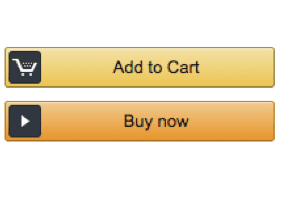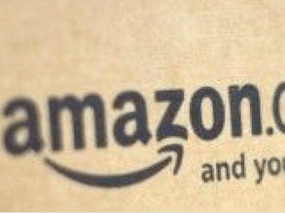Selling on Amazon’s marketplace can be challenging. There are, to be sure, millions of prospective customers. But there are also many competitors selling there, often at prices that are difficult to match or compete with.
James Thomson is a former senior Amazon executive. He recently spoke with me on how ecommerce merchants can best use Amazon’s marketplace.
Practical Ecommerce: You have a connection with Amazon.
James Thomson: I worked at Amazon for just under six years, primarily on the third-party side. I worked in a number of capacities, both managing one of the categories all the way through actually managing Amazon Services, which is the platform through which most sellers choose to make their introduction to Amazon.
Since I left Amazon, I have worked with a number of Amazon clients, helping them figure out what their Amazon strategy is. There’s a lot of opportunity to make a good business on Amazon, but there’s also a lot of land mines that need to be managed.
PEC: Is Amazon for everyone? Should every ecommerce merchant sell on Amazon’s marketplace?
Thomson: There are folks who are straight up resellers, and then there are folks who have their own brands. We need to look at the world according to those two groups.
Amazon represents a marketplace that is bigger than the next 12 online marketplaces combined. You’ve got more consumers today starting their product search on Amazon than they do on Google. For a pure play ecommerce site, there is always that challenge of how many customers are going to start on Amazon anyway and may never find the site where a merchant is trying to sell its products.
For better or worse, you’ve got this huge marketplace where you’ve got 160 million active shoppers. You have that challenge of how to differentiate the experience that you can offer on your own website when your competitors are going to be using the Amazon marketplace as well.
If you’re a pure reseller today, you are selling someone else’s brands and chances are those brands are already showing up on Amazon. For all the consumers that start their product search on Amazon, it’s going to be hard for you to pull customers away.
Now if you’re selling your own brand, you’re going to have to do a lot of work to pull product searches away from Amazon and move them towards Google so that your products have visibility and your pure play ecommerce site has visibility.
A lot of sellers look at Amazon as a way to sell stale or excess inventory, and that’s a fantastic way to incorporate Amazon into your distribution model.
PEC: Can you envision Amazon allowing customized products on its marketplace?
Thomson: Amazon’s not good at this today, primarily because Amazon’s catalog is based off of unique UPCs for unique products. As soon as Amazon figures out technologically how to handle that, I think that that’s an area they will move into.
That being said, Amazon’s marketplace has succeeded primarily because of the advancement of the Fulfillment by Amazon, the FBA program. It’s going to be difficult to have custom products in FBA today.
I suspect we’re at least a few years away from all of those issues being resolved.
PEC: One criticism of selling on Amazon is that it competes with a merchant’s need to build a brand, which is key to a merchant’s long term success. Selling on Amazon and developing a reliance on revenue from Amazon does nothing to build a long-term brand. Thoughts on that?
Thomson: I certainly understand the perspective that a seller on Amazon is experiencing a situation where every sale is a transactional sale. Every customer remains an Amazon customer, so the channel becomes one where you get sales and you enjoy those sales, but you can’t leverage those necessarily for future sales, and even you have a successful private label brand that you have built and you do sell on Amazon, the reality is there’s 10 more private label brands like that that are going to show up as soon as your product starts to get really good sales.
It is a challenge — there’s no question — thinking that you can use Amazon primarily as a mechanism for creating future customers of your own for your own website. I don’t see a lot of sellers being successful doing that. I do, however, see Amazon as a place where sellers, as they continue to grow, and the operational complexities that they experience with their own website, as those get more complex, using Amazon as a place to be able to do fulfillment, to be able to do customer service, that’s certainly a good thing.
PEC: Merchants that build a successful ecommerce site can often sell it to a larger company, or to another merchant. Are you aware of merchants that have sold their Amazon presence?
Thomson: The short answer is yes. The big question here is what is an Amazon seller actually selling to another prospective buyer? Are you really buying access to brands that nobody else can get their hands on? Those are tough questions to answer, and if you’re thinking about potentially buying an Amazon seller account, these questions have to be answered up front before you spend a penny.
PEC: Your company is producing a conference, The Prosper Show, to help merchants succeed on Amazon.
Thomson: The Prosper Show, in February of next year, is focused primarily on helping sellers break down their business into each of the major operational processes — inventory order management, forecasting, pricing, tax collection, feedback, all these kinds of issues. We complemented that with 10 former Amazon business leads who will all be there together to help share their insights and their learnings and their guidance.
This is an unusual type of conference because it is a continuing education event. It really is meant to be an event where you roll up your sleeves, ask questions, and learn. You’ll walk away with a much better understanding of what it’s going to take to be a successful seller.
We also put together what’s called a starter kit. A number of solution providers are partnering with us to provide almost $10,000 of free software and solutions for helping sellers to build their business, drive their business forward in the right direction, and be in a better position to be able to scale, and potentially outsource some of the nasty annoying parts of day-to-day operations.
Today, if merchants are interested in The Prosper Show and buy a ticket, they will get these software and solutions included.
PEC: When and where is the conference?
Thomson: It’s at the Salt Palace Convention Center, in Salt Lake City, Utah. It will be Monday and Tuesday, February 8th and 9th, 2016.
PEC: Anything else?
Thomson: The reality is whether you’re a pure play seller, whether you sell on multiple or even single marketplaces, Amazon is here to stay and it’s going to continue to grow. It is important for sellers to understand where Amazon fits into their overall business strategy.




